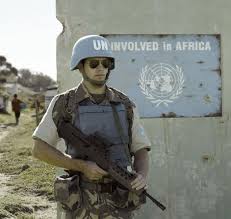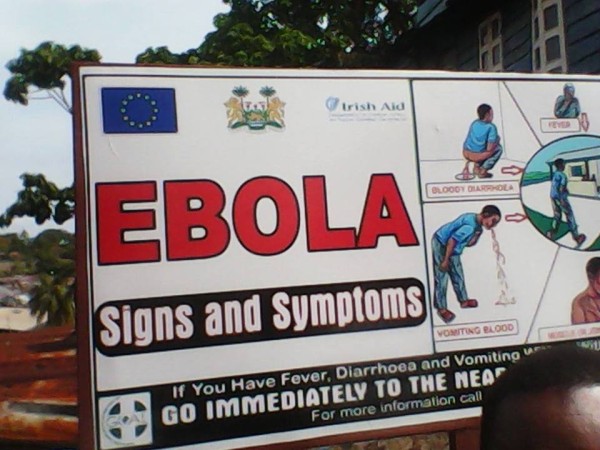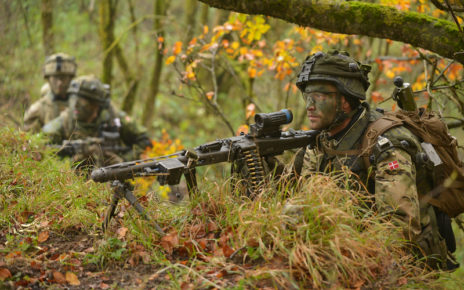Part II – Election Day

After dozens of interviews conducted with Maria’s help, passionate nightlong discussions with Andrii about Ukraine’s future, and a few cups of tea and bowls of borscht in rural cafés while some people observed me like a foreign novelty, voting day arrived. Petr and I would spend the next 28 hours observing voting, the counting of ballots, and the tabulation of the results. It would turn out to be extremely tiring, frustrating, and at times utterly chaotic. At times, however, it was wholly inspiring.
Election Day monitoring, which included note taking and photographing the election process, began at 7:15 a.m. on October 26. We arrived promptly at the precinct – a village school – to observe everything from the formal unsealing of the safe to the demonstration that the ballot boxes were empty. The local priest began with a solemn prayer, the national anthem was sung, a speech was given, and the doors to the polling station were then opened at 8 a.m. sharp.

Ukraine uses paper ballots and so commission members, sitting at tables in pairs of two, were checking IDs, had the voters sign the voter lists and the tear-off portion of the ballot was then signed by a commission member and by the voter. As they would in Canada, voters would then take their ballots to private voter booths covered in blue and yellow cloth and then proceed to drop their ballots into the transparent, sealed boxes in open view of all. The commission puts tamper-proof seals on the lids to prevent ballot stuffing. In almost all PECs, there were also smaller ballot boxes which were used for mobile voting. Ukrainian law provides for sick and disabled voters to be able to vote at home and so a group of PEC commissioners takes the mobile ballot boxes to voters’ homes later in the day.
Similar to Canada, when the polls first open, not many drop by; things are slow. Although I knew it would be the case, I was somehow disappointed, expecting that Euromaidan for some reason had transformed apathy. But, unlike Canada, as I had learned through Maria, it was a Sunday and many families were worshipping at church. As such, many voters would likely not arrive before 10. Sure enough, after that hour, there were large streams of families arriving with some even waiting to get in. It was humbling to see the many smiling faces, old and young, as they walked in one by one. The look of curiosity in the eyes of young children as they gazed upon their parents casting their papers in the ballot box was powerful.

It was wonderful to see a lot of involvement of young adults running the precincts. Also noteworthy were the many young people who served as party or NGO observers.In our area of observation, women were exceptionally well represented in PECs and many had a number of years’ worth of experience in setting up and running polling stations. As I moseyed around the PECs, I was happy to come across voter educational materials displayed at the polls which were co-funded and supported by Canada. Canada, comprising the third-largest Ukrainian population in the world behind Ukraine and Russia, is currently among the strongest international supporters of Ukraine’s European aspirations and democratic reforms, particularly when it comes to the country’s electoral and legal frameworks.
During the day, we continued visiting more PECs in Brody. I found we were welcomed at virtually every turn. In traditional fashion, women served us food and beverage; they chit-chatted with us too. Some even insisted on taking pictures, first with their cameras and then with mine. There were chuckles, smiles and warm embraces. It seemed as though I was the first brown-skinned person they had seen passing through the town. There was music heard in some polls. Melancholy folk songs were caroled by some elders recounting life under the Holodomor. Other tunes were jubilant and sweetened by a patriotic chorus. Voting in Ukraine is a socializing and community-building experience. In the villages, in particular, everyone was on a first name basis and Election Day was the time, apart from church services, where farmers and villagers were able to be in each other’s company and get updates from friends and neighbours in the foyers.
Some PECs, understandably, were unnerved when they spoke with us, flustered, fidgeting their fingers and displaying emotion. They had never encountered an international observer and, in an effort to show us they knew exactly what they were doing, polling chairs spewed facts on Ukrainian election law, with their election guide books in hand. Taking all of these experiences together, at the very essence of it all, I had a sense that the population was eager to show us and, ultimately, the world that Ukraine was able to conduct a fair and transparent election, and that the country was capable of shielding democratic values.

Counting the ballots
The balloting process I saw was generally well organized and orderly. As we traveled from poll to poll, we noticed a steady turnout at the polls, with no last minute rush before the 8 p.m. closing. When polls closed, the commission members gathered around the table, tallied the total number of ballots, compared that with the numbers on the voters’ list and the tear-off portions of the ballot. This preparatory process was so tedious and long that the actual count only started around 10 p.m. when they began to count and place ballots on one of the 30 or so piles.
Like many rural women on a Sunday night, the Ukrainian women on the commission treated the counting like a card game. They read out the name of each candidate, passed it to one of their peers, who then added it to the pile. They joked, gossiped, and counted ballots. But unlike a Canadian election, they needed to stay for another two hours to tediously complete by hand about 25 ‘protocols’ which would then become the official document of the election. It was meticulous and boring work. Yet, there were moments when I surveyed the room observing how the adults and young people, although quarrelling and making commotion, were working together in a special unison, like one big family.
After spending an arduous six hours at the polling station, it was finally time for the packaged ballots and the protocols to make their way to the DEC. The process at the DEC was interminably slow, inefficient and very laborious, even more so than at the PEC. DEC officials recounted ballots and reassessed the protocol records, reading each line of PEC protocol in front of members of the general public and other village PECs before inputting final numbers into the Vybory computer system. If there was one mistake, DEC officials would almost unsympathetically send the PEC members back to their towns to decipher their slip-ups. Our DEC in Brody sent at least a hundred PEC reports back for technical corrections. The unfortunate side of this is that some PEC staff just found their way to the nearest washrooms to adjust numbers and make swift corrections.

As one could imagine, the counting and tabulation process took all night and in many districts in Ukraine, like Brody, it took several days, so official nationwide results were not announced until about a week or so after. The DEC, although an electoral safety net, to me, was an inhumane experience. I can never forget the hundreds upon hundreds of people squeezed inside the foyer of the building. Some people could not make it inside and were forced to wait outside in the cold throughout the night. I heard from a local observer that one man even had a stroke from being out in the chilly weather. There was plenty of yelling, unruly crowds, haphazard queues. People were drained. Some even dozed off on pillows, wrapped in blankets while sprawled on the floor. I was crammed in and kept wondering to myself how this was even permissible.
Despite these oddities, with regard to the overall legality of the parliamentary vote, as already announced by the OSCE – and as I could see firsthand from the polling stations I visited – Ukraine has made tremendous strides in ensuring a free and fair election process compared to the past when voting irregularities and prevarications seemed to plague elections in Ukraine and other post-Soviet states. Antiquated procedures and attitudes like these are difficult to comprehend by those who live in countries with a long election experience behind us, but understandable for a relatively new democracy like Ukraine. That said, despite the electoral advancements that have been made, Ukraine still has a long way to go.




